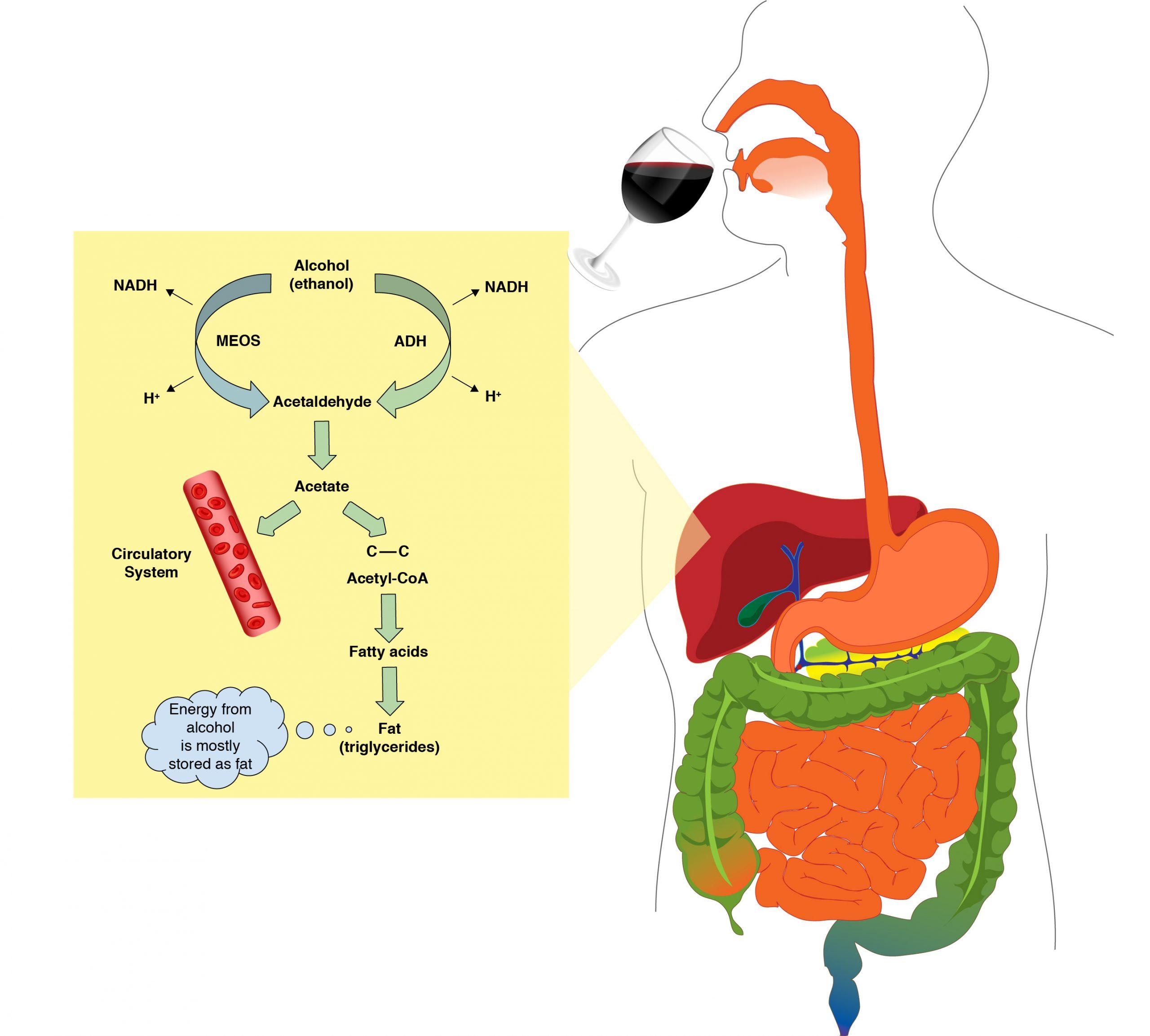In the pursuit of a healthier lifestyle, the journey of weight loss often resembles a delicate dance, where every step and choice can sway the outcome. Among the myriad of factors influencing this dance, alcohol emerges as an intriguing partner. It clinks in glasses at celebrations, whispers promises of relaxation after a long day, and yet, it quietly complicates the path to shedding those extra pounds. This article delves into the enigmatic relationship between alcohol and weight loss efforts, unraveling how this age-old social lubricant can both hinder and shape our body transformation goals. Through a balanced exploration, we seek to understand the subtle ways in which alcohol influences our metabolism, decision-making, and ultimately, our success in the quest for a healthier self.
Navigating the Caloric Conundrum: Alcohols Hidden Impact on Diet Plans
While many diet plans meticulously count calories from meals and snacks, the caloric intake from alcohol often slips under the radar, quietly hindering weight loss goals. Unlike proteins, fats, and carbohydrates, alcohol provides “empty calories“—those that supply energy without nutritional benefits. A single gram of alcohol contains about 7 calories, which is more than carbohydrates and proteins. This means that even a couple of drinks can quickly add up to a significant portion of your daily caloric allowance.
- Metabolic Disruption: Alcohol consumption can disrupt the body’s metabolic processes. The liver prioritizes metabolizing alcohol over burning fat, which can slow down weight loss.
- Appetite Stimulation: Drinking can increase appetite and lead to poor food choices. It’s not uncommon to reach for high-calorie, nutrient-poor snacks while sipping on a drink.
- Sleep Interference: Alcohol can affect sleep quality, which is crucial for weight management. Poor sleep can lead to hormonal imbalances that increase hunger and cravings.

Metabolism in Motion: How Alcohol Alters Your Bodys Fat-Burning Ability
When you sip on a cocktail or enjoy a glass of wine, your body prioritizes metabolizing the alcohol over other nutrients. This is because alcohol is recognized as a toxin that needs to be processed quickly. As a result, your body’s natural fat-burning mechanisms are put on hold. The liver, responsible for breaking down alcohol, focuses its energy on detoxification, diverting attention from fat metabolism. Consequently, the calories consumed from food are more likely to be stored as fat rather than being used for energy.
- Inhibition of Lipid Oxidation: Alcohol consumption temporarily impairs lipid oxidation, which is the process of breaking down fats for energy.
- Caloric Content: Alcohol itself is calorie-dense, providing about 7 calories per gram, which can contribute to an excess calorie intake.
- Impact on Hormones: Drinking can affect hormones like insulin and cortisol, which play crucial roles in how the body manages weight and stores fat.
Understanding these effects can be crucial for anyone looking to manage their weight effectively. While moderation is key, being mindful of alcohol’s influence on metabolism can help in aligning consumption habits with weight loss goals.

Mindful Choices: Balancing Social Drinking with Weight Loss Goals
Embarking on a weight loss journey often involves scrutinizing dietary habits, and for many, social drinking is a key area to consider. Alcohol, while a staple in social gatherings, can be a hidden saboteur in weight management efforts. The caloric content in alcoholic beverages is often underestimated, with a single glass of wine or a pint of beer packing in more calories than anticipated. This can quickly add up, leading to unintended calorie surpluses that stall weight loss progress. Moreover, alcohol consumption can lower inhibitions, making it easier to indulge in high-calorie snacks and meals, further complicating the quest for a healthier lifestyle.
Balancing social drinking with weight loss goals requires mindfulness and strategic choices. Here are a few tips to consider:
- Choose lower-calorie options: Opt for light beers, wine spritzers, or spirits mixed with soda water.
- Set limits: Decide on a drink limit before social events to avoid overindulgence.
- Stay hydrated: Alternate alcoholic drinks with water to pace yourself and reduce overall intake.
- Plan ahead: Eat a balanced meal before drinking to minimize hunger and the temptation to snack.
By incorporating these strategies, individuals can enjoy social occasions without compromising their weight loss aspirations, fostering a balanced approach to both health and social life.

Crafting a Healthier Path: Expert Tips for Managing Alcohol Consumption
When striving to shed those extra pounds, it’s crucial to understand the role alcohol plays in your weight loss journey. Alcoholic beverages are often laden with hidden calories, which can quickly add up without providing any nutritional value. To navigate this challenge, consider the following expert strategies:
- Choose Wisely: Opt for drinks with fewer calories. Light beers, dry wines, and spirits mixed with zero-calorie mixers can be better choices than sugary cocktails.
- Set Limits: Establish a clear limit for alcohol consumption, such as no more than two drinks per occasion, to prevent overindulgence.
- Stay Hydrated: Alternate alcoholic drinks with water to stay hydrated and reduce the overall intake of alcohol.
- Mindful Drinking: Savor each sip, paying attention to the flavors and sensations, which can enhance satisfaction and reduce the urge to drink more.
Understanding the impact of alcohol on metabolism is equally important. Alcohol is metabolized before fats and carbohydrates, potentially slowing down the fat-burning process. By implementing these tips, you can enjoy social occasions without compromising your health goals. Remember, moderation is key, and small adjustments can lead to significant improvements in your overall well-being.
Key Takeaways
As we uncork the complexities of alcohol’s role in weight loss, it’s clear that the relationship is as nuanced as a fine wine. While a glass of celebration may accompany life’s milestones, understanding its impact on our wellness journey is crucial. By balancing indulgence with mindfulness, we can savor the moments without derailing our goals. Ultimately, the choice rests in our hands, a testament to the harmony between desire and discipline. As we raise our glasses to informed decisions, may our paths to health be as fulfilling as they are enlightening. Cheers to knowledge, moderation, and the pursuit of well-being.

